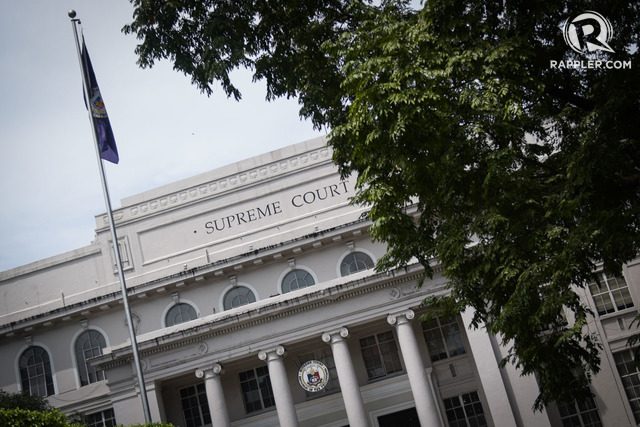SUMMARY
This is AI generated summarization, which may have errors. For context, always refer to the full article.

MANILA, Philippines – The Bayan Muna party asked the Supreme Court (SC) to exclude anti-monopoly provisions from the blanket temporary restraining order (TRO) it imposed on the Retail Competition and Open Access (RCOA) policy.
Bayan Muna chairman Neri Colmenares filed his group’s petition on Tuesday, April 24.
Under the RCOA, big power consumers, or those that consume an average monthly peak of one megawatt (MW), are required to source their power from any of the 23 retail electricity suppliers (RES) designated by the Energy Regulatory Commission (ERC) and the Department of Energy (DOE).
Various groups including the Philippine Chamber of Commerce and Industry (PCCI) warned that the RCOA would be anti-competitive. These groups filed a petition to stop the policy, which the SC granted through a TRO issued in February 2017.
‘Sweeping TRO’ curbing competition?
In its petition, Bayan Muna noted that the PCCI did not question the RCOA in its entirety, but only certain provisions.
Colmenares said that due to the TRO, the ERC has not even issued licenses to small companies applying to be RES, in effect giving Meralco’s MPower and other already licensed suppliers an advantage.
“The sweeping TRO, wittingly or unwittingly, has given monopolies like Meralco the advantage, as potential contestable customers remain captive under its monopoly for fear they may be violating the TRO,” Colmenares said.
“It is imperative for [the SC], therefore, to expressly declare that those provisions not assailed by petitioners are valid and remain in force. Otherwise, other provisions of RCOA which could impact on the continued monopoly of Meralco will have been restrained to the detriment of the public interest,” he added.
The provisions that Bayan Muna seeks to have removed from the TRO’s coverage include Section 3 of a DOE circular which states that all electricity end-users with an average demand ranging from 501 kilowatt hours (kWh) or below 750 kWh for the preceding year can choose their own RES.
Another provision is Section 1 of ERC Resolution No. 10 which states that those who have been issued certificates of contestability shall be allowed to contract with any RES on a voluntary basis. – Rappler.com
Add a comment
How does this make you feel?
There are no comments yet. Add your comment to start the conversation.